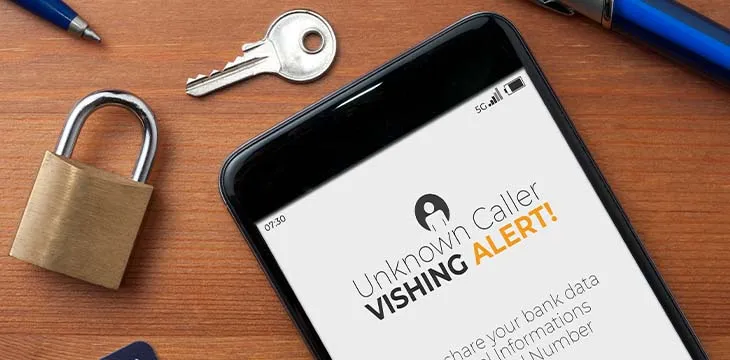|
Getting your Trinity Audio player ready...
|
South Korea’s crusade against digital currency bad actors heats up following an announcement from the Financial Services Commission (FSC) that it will extend the existing law against phishing to the digital currency industry.
The FSC recently laid out its plan, stating that it will seek the amendment of the law on voice phishing countermeasures to protect digital asset investors. In the event that the scheme scales all legislative hurdles, the Telecom Fraud Damage Refund Act will apply to all virtual asset service providers (VASPs) in South Korea.
Under the proposal, law enforcement authorities will have the power to freeze and seize funds linked to fraudsters on local digital currency exchanges. The FSC plans to set up a 24-hour response system to improve its monitoring of phishing activity in the ecosystem.
The changes will allow various law enforcement agencies to share data with financial firms to provide “quick relief from voice phishing using simple remittance.” Furthermore, the newly established Government Joint Investigation Team for Voice Phishing Crimes and the Integrated Voice Phishing Report and Response Center will play a key role in policing digital currency bad actors.
“Regarding the announced countermeasures, we will push ahead with legislative bills and submit them to the National Assembly for future law revisions, and we will respond to evolving voice phishing techniques by quickly developing systems such as financial institutions,” said the FSC.
Voice phishing scammers operate by calling victims and impersonating government officials or staff of reputable companies with the end goal of retrieving personal information. Using private information, the scammers log into the digital wallets of victims to siphon their funds.
Voice phishing scams involving digital assets have risen by 100% since 2020, with $15 million worth of assets pilfered using the tactic.
Striking hard against North Korean hackers
Data from South Korea’s National Intelligence Service (NIS) blames elite North Korean hacking groups Lazarus Group for being behind over half of the digital currency thefts in the country. The NIS report confirmed that state-sponsored hackers stole over $600 million from the country, while Chinese hacking groups contributed only 4.7% of thefts.
South Korea’s Ministry of Foreign Affairs has issued new sanctions against the marauding hacking gangs in conjunction with U.S. security agencies to counter their activities.
“The South Korean government has decided to take specific measures to counter illegal cyber activities, which are one of North Korea’s main sources of funding for nuclear and missile development,” said the ministry.
Watch: Trust But Verify Everything

 07-01-2025
07-01-2025 





